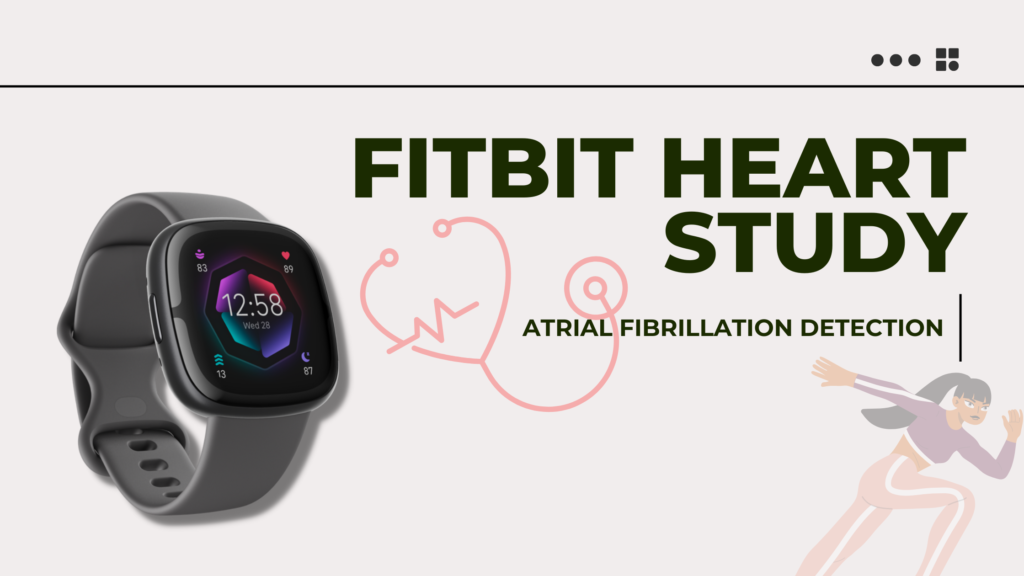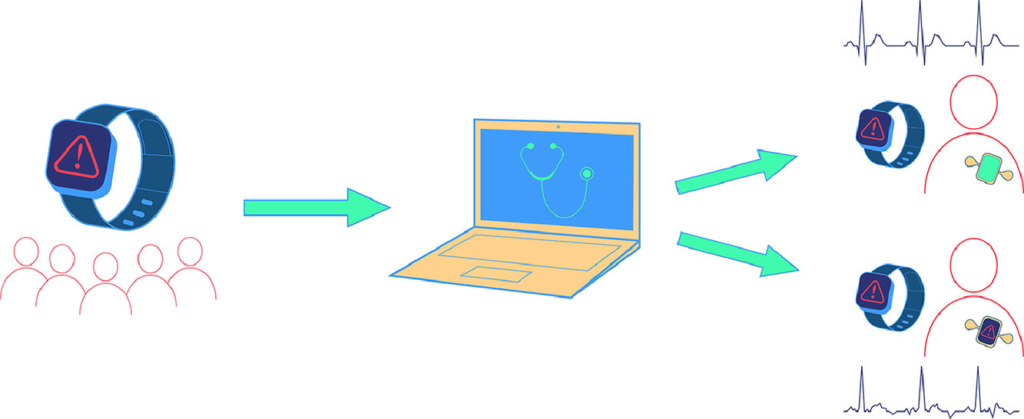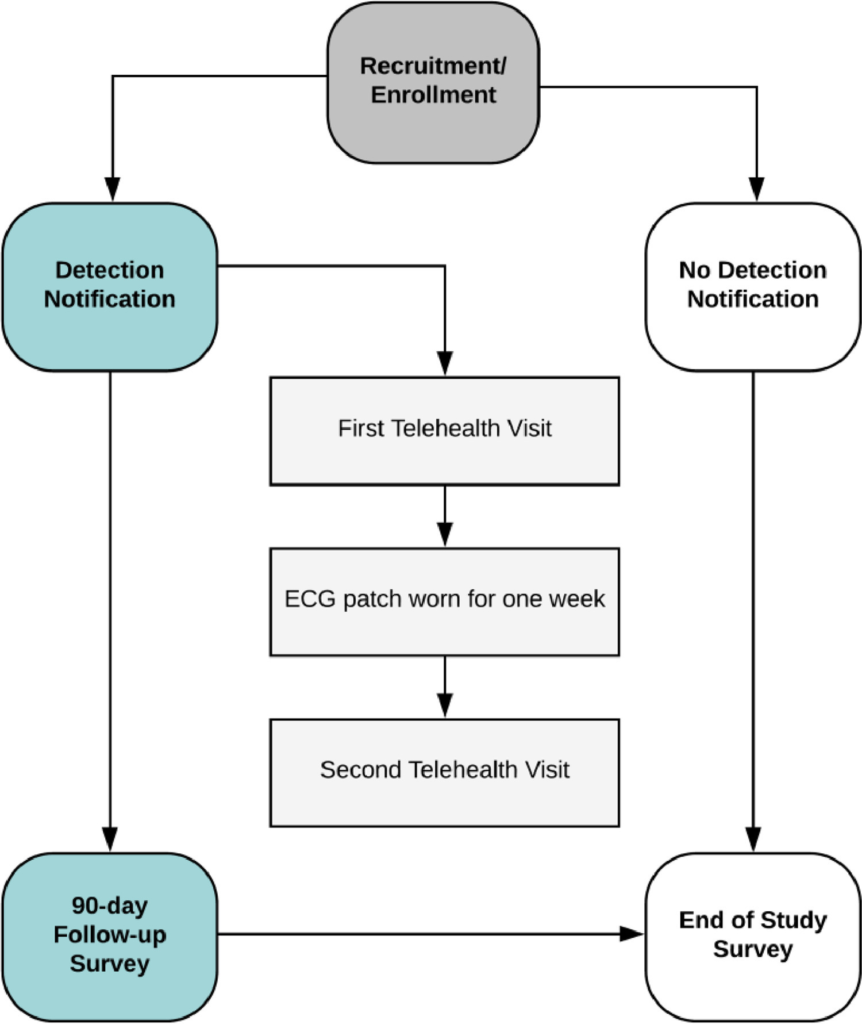
Fitbit may reduce your risk of stroke and heart failure: The Fitbit Heart Study
Fitbit, a wearable device
What is Fitbit
Fitbit is one of the several companies (Apple, Samsung, etc.,) that sell smartwatches that could track heart rate, daily steps, workout time, etc., among several other uses. Although smartwatch is the main product of Fitbit, other products including trackers (that also look like a smaller, thinner and more sleek smartwatch), smart scales (that weighs you smartly), accessories and even premium memberships. Fitbit was one of the first tracker to enter the market and hence most well-known among consumers. Over 130 million devices have been sold with 30 million active users across more than 100 countries. In addition, there are more than 500,000 premium members.
What it can track
Fitbit can track a whole bunch of health, fitness, and activity measurements.
- Skin temperature
- Heart rate (via ECG app)
- Heart rhythm (via ECG app)
- Mood (Stress management and daily readiness score)
- Sleep Score
- SpO2 (oxygen level in your blood)
- Active Zone Minutes (time and intensity of workout, calories burnt)
Here, we will be focusing on the metrics that is relevant to atrial fibrillation.
Fitbit technology
Using the FDA cleared smartwatch, along with the installed ECG app, an atrial fibrillation (AF) assessment can be made on demand. In-built irregular heart rhythm notifications can alert the users for signs of AF even while they are still or sleeping.
Fitbit uses a technology called optical photoplethysmography (PPG) sensor to measure the heart rate. Algorithms can analyze the pulse waveform irregularity from the PPG data and infer the presence of AF in participants that are sufficiently stationary. One such algorithm developed for Fitbit was studied in a recent study that was published in Circulation. Similar studies studying the effectiveness of AF prediction algorithms was published for Apple Watches. Fitbit algorithm uses more frequent sampling of PPG data and more specific criteria for irregular rhythm detection thereby avoiding false-positive detections.

Fitbit heart study
Atrial fibrillation (AF)
AF is a common cardiac arrhythmia or irregular heart rhythm that is associated with substantial morbidity, including risks of stroke and heart failure. Thromboembolic prophylaxis is recommended after the diagnosis of AF and can reduce stroke risk and improve survival. Paroxysmal AF occurs when there is sudden increase in heart rate and abnormal rhythm that lasts less than a week and resolves spontaneously.
Study design
Between May 6, 2020 and as of October 1, 2020, 455,699 participants were enrolled. Fitbit users with wrist-worn trackers or smartwatches were invited to participate. Individuals in whom an irregular heart rhythm was detected were invited to attend an online health visit. After review of the data, eligible participants were then mailed a one-week single lead ECG patch monitor. The primary goal of the study to evaluate the effectiveness of the algorithm in elucidating the detection of AF via early detection of irregular heart rhythm.

Results of the study
The overall conclusion was that the Fitbit smartwatch or tracker based irregular heart rhythm algorithm
- may be useful for early detection of undiagnosed AF in a large scale setting.
- can detect irregular heart rhythm that has a higher likelihood of having AF in subsequent ECG examination.
- can be more sensitive predictor of if used during night time as well.
- may not be fully effective while the user is not stationery.

Is it a good idea to buy Fitbit or other wearable devices?
Maybe yes, as AF can be paroxysmal and asymptomatic in some individuals and this device is FDA cleared. And, it is well established that strokes caused by AF are preventable with prophylactic treatment. Large scale examinations of irregular heart rhythms are almost impractical and will further burden the overworked healthcare system. Artificial intelligence systems such as wearable devices are rapidly changing healthcare at every step and using such devices can in long term possibly save lives.
Caveats
It is also important to note that caution must be exercised to not run to the physician every time there is an irregular heart rhythm notification because in this study, two-thirds of those that received an initial irregular heart rhythm notification and returned for the subsequent 1-week ECG patch did not have AF confirmed.
The algorithm requires at least 30 minutes of an irregular pulse to detect AF, and only operates during sedentary periods. These requirements makes the algorithm less sensitive for episodes of AF.
The long-term benefits of the devices with regards to AF detection is yet to be explored. Did the outcomes improve? Was the hospitalization shortened? Were stroke incidence reduced? These are some of the open questions that has to be answered.